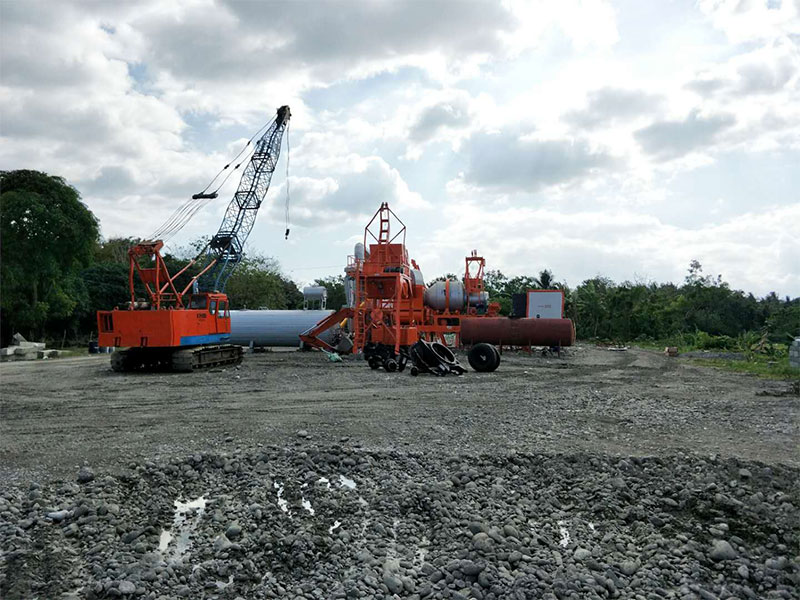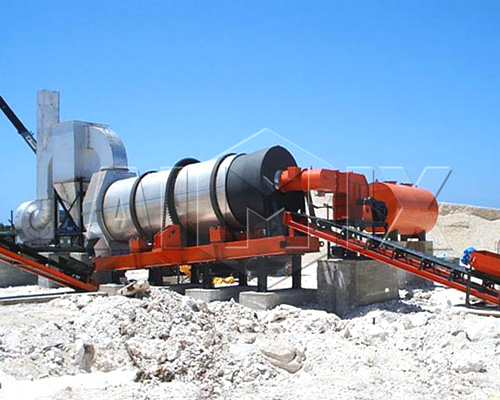Mobile asphalt plants are essential for producing asphalt mixtures on-site, providing flexibility and convenience for various construction projects. Proper installation and maintenance are crucial for ensuring the reliable operation and longevity of these plants.
Site Selection and Preparation
Selecting an appropriate site for the installation of a mobile asphalt mixing plant for sale is critical to its performance and efficiency. The chosen location should have sufficient space to accommodate the plant, including clearance for operation, storage of raw materials, and access to delivery trucks.

Before installation, the site should be properly prepared to ensure a stable foundation and optimal drainage. Clearing vegetation, leveling the terrain, and compacting the soil help create a stable base for the plant and minimize the risk of settlement or shifting during operation.
Proper Foundation and Anchoring
A solid foundation is essential for the stability and structural integrity of a mobile asphalt plant. Depending on the site conditions and local regulations, the portable asphalt plant may require a concrete pad or compacted gravel base to support its weight and withstand operational loads.
Anchoring the plant securely to the foundation helps prevent movement or displacement, especially in regions prone to high winds or seismic activity. Utilizing heavy-duty anchor bolts and appropriate anchoring techniques ensures that the plant remains stable and secure during operation.
Equipment Installation and Calibration
The installation of individual components within the mobile asphalt plant requires careful attention to detail and adherence to manufacturer guidelines. Components such as the dryer drum, mixer, hot aggregate bins, and control system must be installed correctly to ensure proper functionality and performance.

After installation, the plant should undergo thorough calibration and testing to verify the accuracy and reliability of critical systems. Calibrating temperature sensors, flow meters, and mixing ratios helps optimize asphalt production and ensure consistent quality across batches.
Routine Maintenance and Inspections
Regular maintenance and inspections are essential for maximizing the lifespan and efficiency of a mobile mini asphalt mixing plant. Establishing a proactive maintenance schedule helps identify potential issues early and prevent costly breakdowns or production delays.
Routine maintenance tasks may include lubrication of moving parts, inspection of belts and conveyor systems, cleaning of burner nozzles, and replacement of worn-out components. Additionally, conducting periodic performance evaluations and system checks helps identify areas for improvement and optimize plant operations.
Safety Protocols and Training
Safety is paramount in the operation and maintenance of a mobile asphalt plant. Implementing comprehensive safety protocols and providing adequate training for plant personnel help minimize the risk of accidents or injuries.
Operators should be trained on equipment operation, emergency procedures, and hazard recognition to ensure safe and efficient plant operation. Emphasizing proper PPE usage, conducting regular safety inspections, and promoting a culture of safety awareness contribute to creating a secure working environment for all personnel.
Environmental Compliance and Sustainability
Mobile asphalt plants must adhere to environmental regulations and best practices to minimize their impact on air quality, water resources, and surrounding ecosystems. Implementing measures such as dust collection systems, emission controls, and recycling technologies helps mitigate environmental impacts and promote sustainable asphalt production.
Proper disposal of waste materials, recycling of reclaimed asphalt pavement (RAP), and optimizing energy consumption contribute to reducing environmental footprint and conserving natural resources. By integrating environmental considerations into plant design and operations, mobile asphalt plants can achieve regulatory compliance while supporting sustainable development goals.
In conclusion, the installation and maintenance of a mobile asphalt plant require careful planning, attention to detail, and adherence to best practices. By selecting an appropriate site, ensuring proper foundation and anchoring, conducting thorough asphalt plant equipment installation and calibration, implementing routine maintenance and inspections, and prioritizing safety and environmental compliance, operators can maximize the performance, longevity, and sustainability of mobile asphalt plants for various construction applications.